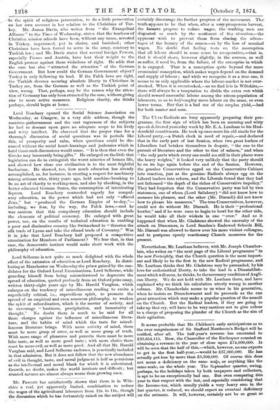Mr. Fawcett has satisfactorily shown that there is in Wilt-
shire a real, yet apparently limited, combination to reduce the wages of the agricultural labourers from 12s. to lls., though the discussion which he has fortunately raised on the subject will certainly discourage the further progress of the movement. The truth,appears to be that when, after 'a very prosperous harvest, the farmers propose to reduce wages, the working men are disgusted as much by the sentiment of the -situation—the apparent 'wish to prevent them from sharing the advan- tages of the bounty of the season—as by the loss of nominal wages. No doubt that feeling rests on the assumption that all labour should in some sense be co-operative,—that is, that it should share, however slightly, in the success, as well as suffer, if need- be, from the failure, of the enterprise in which it is engaged. 'That is a conception quite beyond the mere economical oouception, which makes wages depend on the demand and supply of labour ; and while we recognise it as a true one, it seems to us only applicable where the labour-market is not over- stocked. When it is overstocked,—as we find it is in Wiltshire,— there will always be a temptation to divide the extra rate which should reward successful labour among the el-cm-population of labourers, so as to half-employ more labour on the same, or even lower- terms. But that is a bad use of the surplus yield,—bad for both master and man.


































 Previous page
Previous page